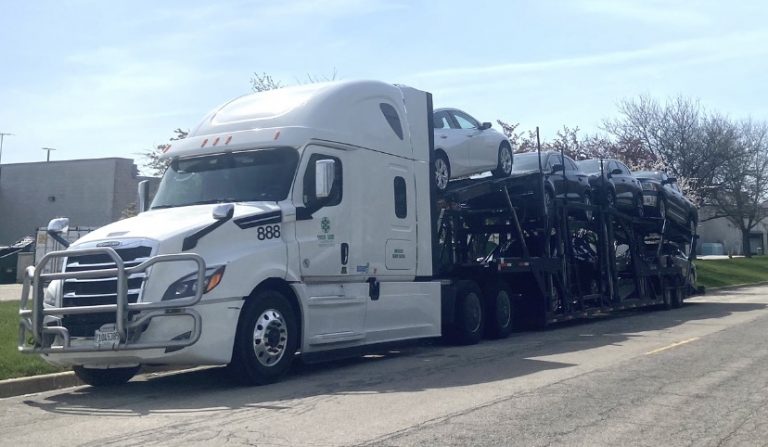
Vehicle transport is a dependable option for moving an automobile, whether it’s for a cross-country move, buying a car from another state, or simply streamlining operations. Time, wear and strain on your car, and needless mileage can all be avoided with this method.
Let’s see how you have to be aware of the prices, advice, and available services before beginning the procedure to guarantee a seamless and economical experience.
A number of variables affect how much car transportation costs. Domestic car shipping costs often fall between $500 and $1,500. All these factors impact the cost:
Longer distances naturally increase the cost. For instance, Vehicle transport from coast to coast is more expensive than a regional move. Similarly, rural areas can incur higher charges due to limited availability of carriers.
The size, weight, and model of the car impact the pricing. Larger vehicles like SUVs and trucks cost more to transport than smaller cars.

There are two main options:
Peak seasons, like summer or during holidays, often lead to increased rates due to higher demand for car transport services.
Expedited services come at a premium. If you’re flexible with timing, you can reduce costs.
To estimate costs accurately, many auto transport companies provide a vehicle transport cost calculator on their websites. Using these tools can give you a clear picture of what to expect.
Not all vehicle shipping companies are created equal. Look for reputable firms with good reviews, transparent pricing, and insurance coverage. Reliable providers ensure your car’s safety and timely delivery.
Request quotes from multiple auto transport companies to find a competitive rate. While affordability is crucial, don’t compromise on quality for a cheaper deal.
Before signing, read the fine print. Ensure you understand terms like cancellation policies, hidden fees, and delivery guarantees.
Before handing over your car, take these steps:
Most vehicle shipping companies provide insurance, but it’s essential to know the extent of coverage. Consider additional insurance if necessary.
Planning ahead allows you to lock in better rates and avoid the last-minute rush.
Different situations require tailored solutions. Here are the primary options available for transport vehicle services:
This is the most common and cost-effective option. Cars are loaded onto an open carrier. While it’s budget-friendly, vehicles are exposed to external elements.
For luxury, vintage, or high-value cars, enclosed transport provides added protection. Although pricier, it shields vehicles from weather and debris.
With this option, the carrier picks up and delivers the car to your desired locations, offering maximum convenience. Most vehicle transport companies like BKK Transport provide this service.
This budget-friendly option requires dropping off and picking up your car at designated terminals. However, it may not be suitable for everyone due to location constraints.
Ideal for urgent deliveries, expedited shipping prioritizes your vehicle. The higher cost ensures quicker delivery times.
With countless auto transport companies in the market, selecting the right car transport services can be overwhelming. Here are some tips:
When planning for long-distance vehicle shipping, keep the following in mind:
While costs can seem high initially, factoring in fuel, lodging, and potential wear on your car often makes professional transport more economical.
Anyone can benefit from car transport services, regardless of the vehicle’s value.
Reputable companies take stringent precautions to ensure your vehicle’s safety. Plus, insurance provides added security.
Vehicle transport simplifies the process of relocating your car, offering convenience and peace of mind. By understanding costs, comparing services, and following essential tips, you can ensure a smooth experience. Whether you’re using a vehicle transport cost calculator or contact us BKK Transport exploring options for long-distance vehicle shipping, the key is to choose a reliable car transporter that aligns with your needs and budget.
The cost ranges from $500 to $1,500, depending on factors like distance, vehicle type, transport method, and seasonal demand. Using a vehicle transport cost calculator can provide a more precise estimate.
For domestic long-distance vehicle shipping, it can take 1–2 weeks. Local transport may take 2–5 days. Delivery time depends on the distance and transport method decided.
Clean your car, remove personal belongings, ensure the fuel tank is ¼ full, and document any existing damage with photos. This helps avoid disputes with the vehicle shipping company.
Yes, reputable auto transport companies provide insurance coverage for your car during transit. Confirm the coverage details before shipping for peace of mind.